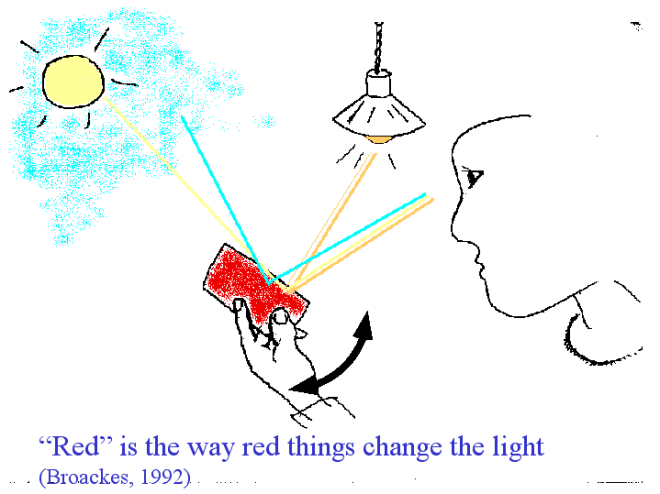Change blindness is a perceptual phenomenon that occurs when an observer fails to notice a visual change. There are multiple ways to distract an observer such that change is not being noticed. Those include image flickering, gradual change and other distracting changes in the scene.
I find change blindness fascinating not because it shows the failings of human perception but because it reveals the inner workings of our visual system.
Think about entering a new room:
We immediately take in the entire scene. It feels like we see everything and know what every object in the image is right away. But of course, we don’t. Our brain makes assumptions and we only realize that if and when we try to use the visual knowledge. For example, if I ask you where is the cat, you’re going to spend some time looking for it before realizing there’s no cat in the image.
Visual Experience
Where and how our visual experience is stored?
Let’s look at two possible explanations:
1.) Dense representation
2.) Sparse representation where Experience = Interaction + Knowledge
Consider for example a simple plate:

In the first explanation, our brain stores much information about the plate so when we see it again we know its the same plate.For instance, we might store a dense colorized point cloud of the plate.
In the second explanation, we store much less about the plate. However, we do store information about how the visual stream changes in response to our actions.
Consider this: how do we know the plate is round?
According to #1 we have such dense representation of the plate that we know how it looks like from many different perspectives and when summarizing it all together the dense representation tells a circular object story.
According to #2, however, it suffices to store sparse information that takes action into account. For instance, roundness follows from the fact that when we move our head to the right a known amount, the appearance of the plate changes in a way that agrees with it being round.
Why is this important? Because the sparse representation is more efficient and explains why we are insensitive to unanticipated change. That is, if we expect things to change in a certain way and they change in a different way our brain might just ignore that change.
Here’s another example:

A red object is red not because every single pixel has a known value but because its appearance changes in a way consistent with being red as we move it around our field of view, under a known illumination.
We never really see a round plate — its projection onto our retina is almost always elliptical. Similarly, we never see an object as pure red, it’s always a function of the viewing angle and illumination in the scene. Yet, if we know how redness changes with illumination and motion, if we know how roundness changes with perspective, we have a good perceptual model for these properties.
Fun Examples
Following are a few fun examples. Don’t look below each image until you’ve tried to identify the change yourself!

Most of will eventually see that there’s a whole new mountain section flickering in and out of the image. We feel pretty stupid when we realize it. How can we be blind to such a huge change? Maybe because mountains jumping around aren’t an experience we’re familiar with…
Here’s another one:

Look at the fence behind the couple. You can see it moves between two heights. Again, a large yet unexpected change can go unnoticed.
And finally, here’s a different type of change blindness:
Did you see how the color of the floor changes over time? Most people can’t tell what changes because it’s so gradual and unexpected.
Summary
Change blindness is fascinating. There are many great examples of it, including blindness to other modalities such as force/tactile sensing, sound and smell. The main lesson here is that our perception is far from perfect — the brain makes assumptions — and when those fail, we miss important information about the world.
Why is the brain making these assumptions? I believe the reason is because perceiving every details of the world constantly is both infeasible and rarely necessary. Simplifying what we pay attention to means faster reaction to what matters with little to no energy spent on irrelevant information.

